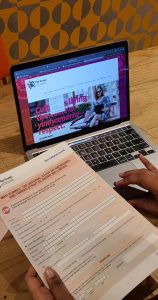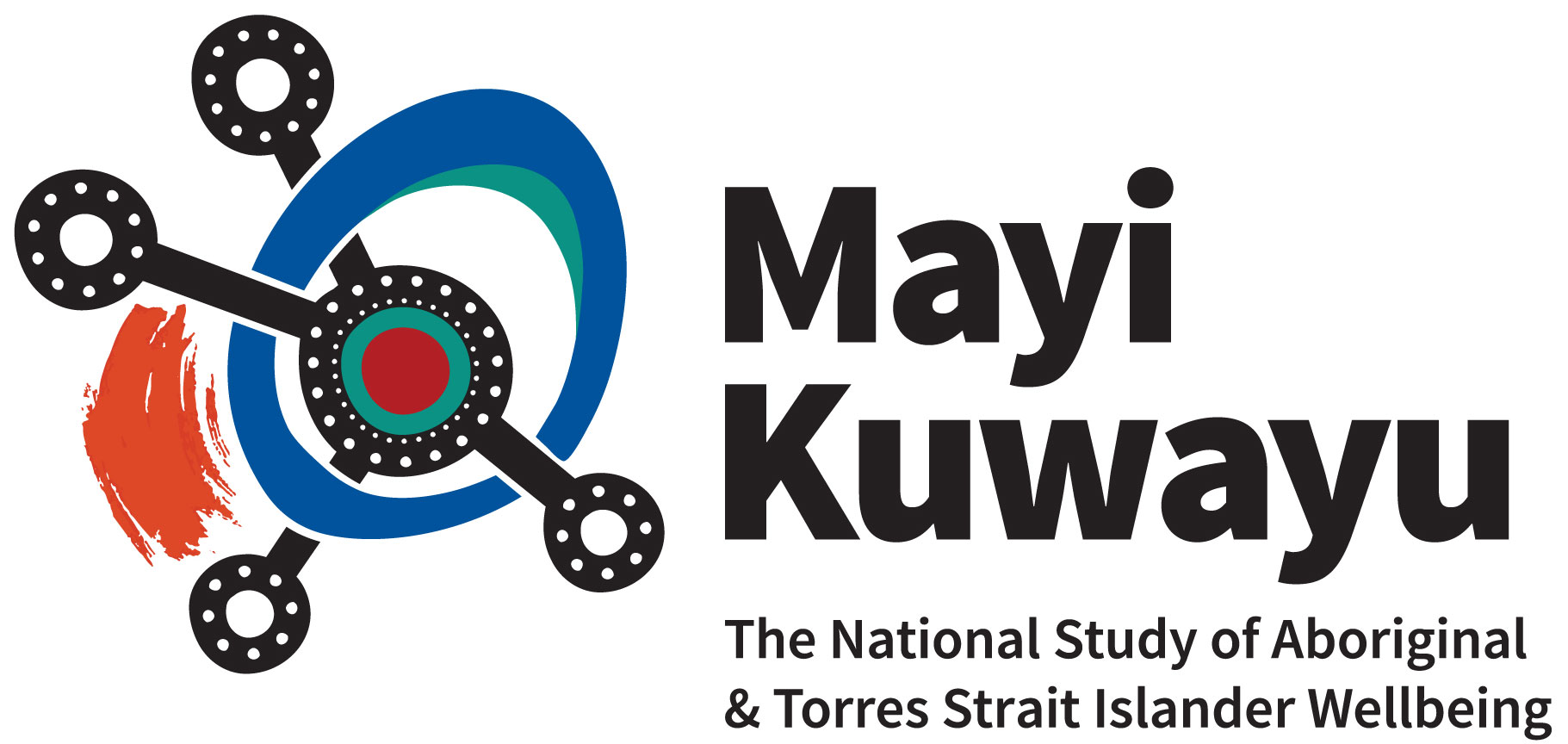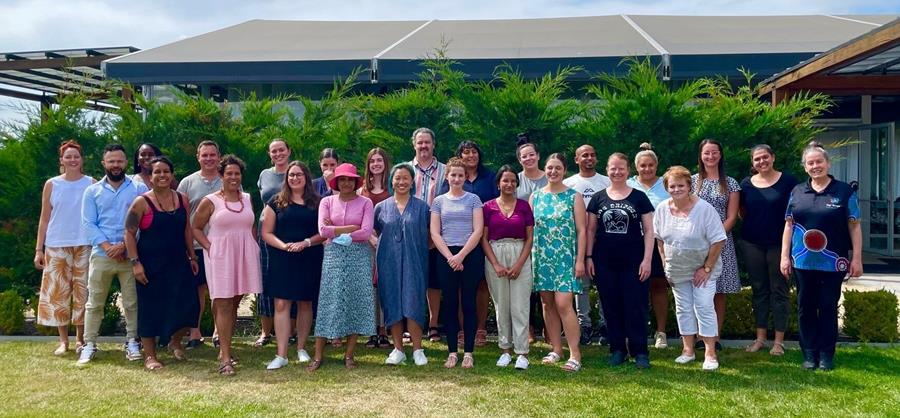Mayi Kuwayu news 2022
The Mayi Kuwayu Study 2.0 survey is here
January 21, 2022Invitation to a launch event for The Lancet special issue
December 1, 2022Kuwayu Study survey 2.0
In January this year, 14,000 Mayi Kuwayu Study survey packs were produced by Australia’s largest Aboriginal print manager E-Bisglobal.
If you haven’t completed a Mayi Kuwayu Study survey and would like a survey pack, please get in touch with us at mkstudy@anu.edu.au. It is also available online, or you can contact the Mayi Kuwayu Study team (1800 531 600).
By participating and sharing your story, you can help create a better understanding of how culture links to our health and wellbeing.

…………………………………………………………………..
Bringing Deadliness to Triathlon
The link between physical and mental health is well established. More than half of the Mayi Kuwayu Study participants said they do some form of exercise daily, including a few of our Aboriginal and Torres Strait Islander Research Team.
Ray Lovett and Bobby Maher recently completed Classic (1km swim/60km ride/10km run) at the big Husky Tri Festival in February, and Nadine Hunt completed her first 70.3 IRONMAN in Melbourne (1.9km swim/90kmride/21.1km run). Nadine was also a guest on the Smurf and Smurfette podcast and yarns about her pre and post-race preparation and the importance of acknowledging and respecting Country, especially on race day. All three athletes proudly represent First Nations Triathlon Club, Tri Mob.
…………………………………………………………………..
The Cancer free pledge
Senior Community Researcher Shavaun Wells and Tobacco Free team leader Raglan Maddox speak about the importance of reducing the burden of smoking-related impact issues on Aboriginal and Torres Strait Islander people.
A campaign by the Cancer Council calls for long-term funding and support for community-led programs that reduce tobacco use among Aboriginal and Torres Strait Islander people to reduce the burden of smoking-related health issues in this community and save lives.

…………………………………………………………………..
The new National Centre for Aboriginal and Torres Strait Islander Wellbeing Research
In February, our Aboriginal and Torres Strait Islander Health Research team (pictured at the top) came together for a two-day workshop on Ngunnawal and Ngambri Country to share and plan for the development of our new Centre at the Australian National University.
…………………………………………………………………..
Papers
Prevalence of Everyday Discrimination and Relation with Wellbeing among Aboriginal and Torres Strait Islander Adults in Australia.
We used and modified a measure called the Everyday Discrimination Scale (EDS) to find out how much people reported experiences of discrimination and then looked at how discrimination was linked to health.
We found that six in ten (58.5%) of people in the Mayi Kuwayu Study had experienced interpersonal discrimination in their day-to-day life. It was most common for participants to report that “People act like I am not smart” and “I am treated with less respect than other people”.
Experiencing interpersonal discrimination was linked to poorer outcomes across social and emotional wellbeing, culture and identity, health behaviour, and health outcomes.
Read our paper on discrimination here.
Reliability, validity, and clinical utility of a culturally modified Kessler scale (MK-K5) in the Aboriginal and Torres Strait Islander population.
We wanted to find out if a modified Kessler psychological distress scale (MK K5) was useful for measuring psychological distress among Aboriginal and Torres Strait Islander people in Australia. The results of our work showed that the modified version we used in Mayi Kuwayu was very good at measuring psychological distress. The MK K5 was also found to be useful for indicating when further investigation was needed for people who might have Depression or Anxiety.
Read our paper on psychological distress here.
Tobacco related attitudes and behaviours in relation to exposure to the Tackling Indigenous Smoking Program: Evidence from the Mayi Kuwayu Study.
We wanted to find out if tobacco beliefs and behaviours were different for mob living in areas with Tackling Indigenous Smoking teams compared to areas of the country that don’t have them.
We found strong anti-smoking attitudes among all Aboriginal and Torres Strait Islander adults across Australia and just over three-quarters (76.3%) of current smokers wanted to quit.
In areas with a TIS team, compared to areas with no team, there was less smoking inside households. We also found that smokers in TIS team areas appeared to have a lower level of nicotine dependence as there were fewer people smoking 21 or more cigarettes per day, and fewer people were smoking their first cigarette within 5 min of waking.
Read our paper on Tackling Indigenous Smoking here.

